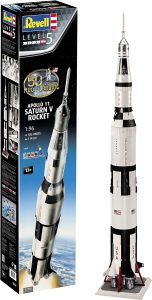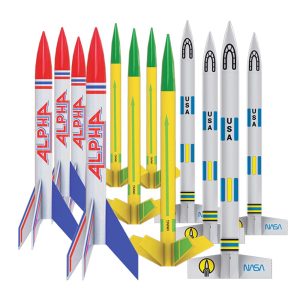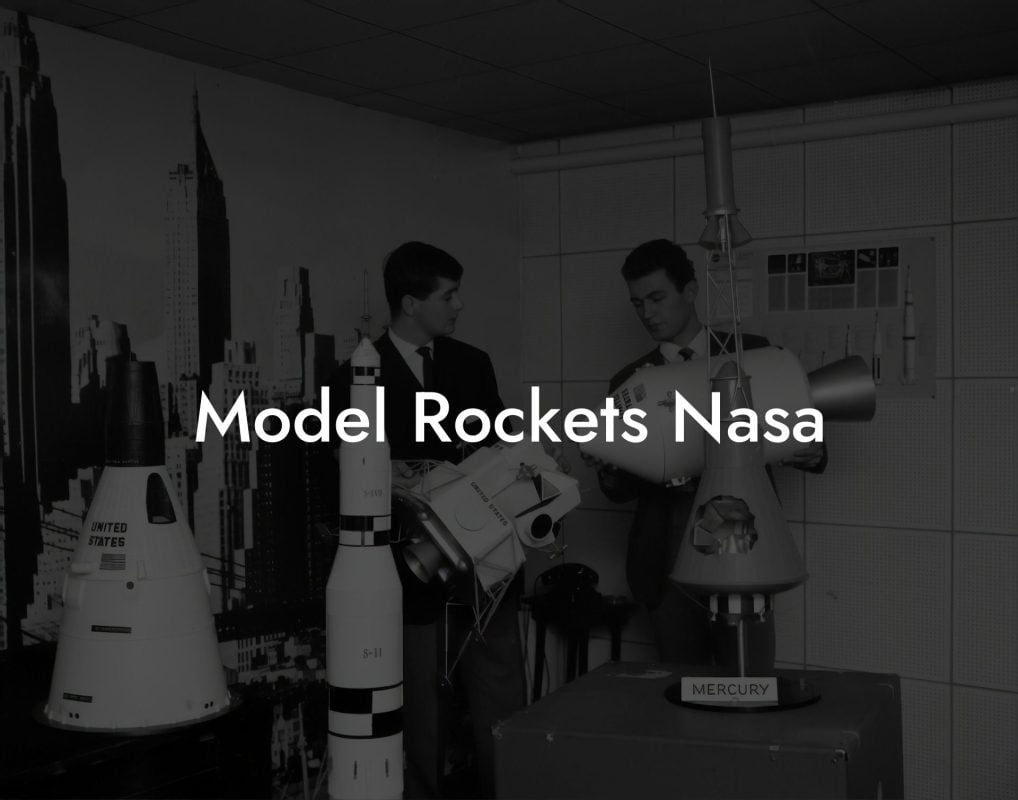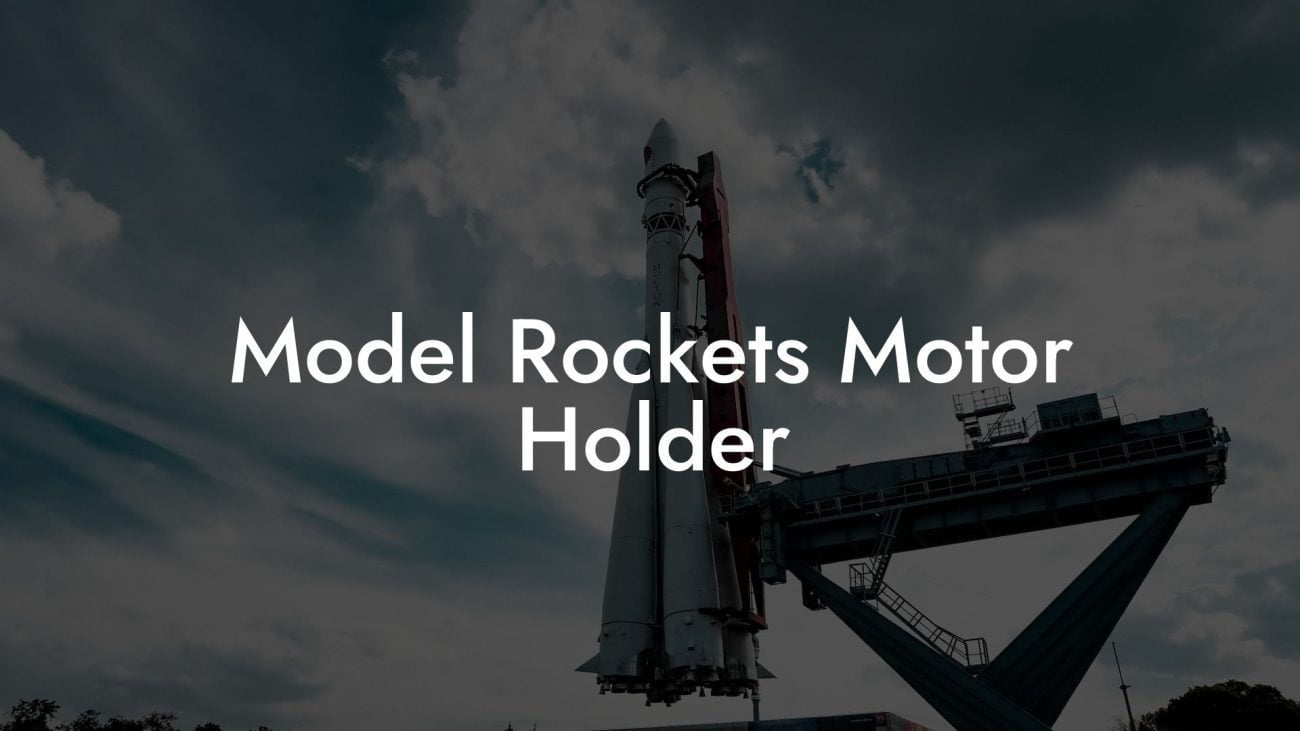Imagine soaring to new heights with precision and control, as your model rocket pierces the sky, leaving a trail of excitement and wonder in its wake. Welcome to the world of GPS-enabled model rockets, where technology meets thrill and adventure! Whether you're a seasoned enthusiast or just starting out, this comprehensive guide will walk you through the ins and outs of GPS for model rockets, empowering you to take your hobby to unprecedented heights.
Quick Links to Useful Sections
- What is GPS for Model Rockets?
- The Benefits of GPS for Model Rockets
- How GPS Works in Model Rockets
- Types of GPS Systems for Model Rockets
- Setting Up a GPS System for Your model rocket
- GPS for Model Rockets: Tips and Tricks
- Resources and community Support: Your Next Steps
- Frequently Asked Questions: GPS for Model Rockets
What is GPS for Model Rockets?
GPS (Global Positioning System) technology has revolutionized the world of model rocketry, allowing enthusiasts to track their rockets with unparalleled accuracy. By integrating a GPS module into your model rocket, you can pinpoint its location, velocity, and altitude in real-time, unlocking a new level of excitement and precision.
In simple terms, GPS for model rockets is about harnessing the power of satellite technology to monitor and analyze your rocket's flight trajectory, ensuring a safer, more enjoyable, and more competitive experience.
The Benefits of GPS for Model Rockets
So, why incorporate GPS into your model rocketry experience? The advantages are numerous:
- Improved Recovery: GPS ensures you can quickly locate your rocket after launch, reducing the risk of loss and damage.
- Enhanced Safety: Real-time tracking enables you to identify potential hazards and take corrective action, minimizing the risk of accidents.
- Competitive Edge: GPS provides valuable insights into your rocket's performance, helping you optimize designs and gain a competitive advantage.
- Increased Fun: With GPS, you can relive the thrill of the launch, analyzing your rocket's flight path and sharing the experience with others.
By embracing GPS technology, you'll unlock a new dimension of excitement, precision, and enjoyment in model rocketry.
Looking For The Best Model Rocket Kits? You'll Love These:
How GPS Works in Model Rockets
So, how does GPS magic happen in model rockets? It's quite simple:
A GPS module, typically integrated into the rocket's payload or nose cone, receives signals from a constellation of satellites orbiting the Earth. These signals are then used to calculate the rocket's precise location, velocity, and altitude.
The GPS module transmits this data to a ground station or a mobile device, providing real-time tracking and analysis of the rocket's flight.
Types of GPS Systems for Model Rockets
When it comes to GPS systems for model rockets, there are several options to consider:
- RTK (Real-Time Kinematic) GPS: Provides high-accuracy, real-time tracking and is ideal for competitive model rocketry.
- WAAS (Wide Area Augmentation System) GPS: Offers improved accuracy and is suitable for most model rocketry applications.
- GPS Modules with SD Cards: Record flight data for post-launch analysis and are a cost-effective option.
Each type of GPS system has its strengths and weaknesses, and the right choice depends on your specific needs and goals.
Setting Up a GPS System for Your model rocket
Integrating a GPS system into your model rocket is relatively straightforward:
- Choose a GPS Module: Select a GPS module compatible with your rocket's design and your tracking needs.
- Install the GPS Module: Carefully integrate the GPS module into your rocket's payload or nose cone.
- Configure the Ground Station: Set up a ground station or mobile device to receive and analyze the GPS data.
- Test and Calibrate: Perform pre-launch tests and calibrate the GPS system to ensure accurate tracking.
With these steps, you'll be ready to launch and track your GPS-enabled model rocket with confidence.
GPS for Model Rockets: Tips and Tricks
To get the most out of your GPS-enabled model rocket experience, keep these tips in mind:
- Choose the Right Antenna: Select an antenna that provides optimal signal reception and minimizes interference.
- Optimize Your Rocket's Design: Ensure your rocket's design doesn't obstruct the GPS signal or compromise the module's performance.
- Use a Reliable Power Source: Choose a power source that provides consistent energy to the GPS module throughout the flight.
- Stay Up-to-Date with Firmware: Regularly update your GPS module's firmware to ensure you have the latest features and improvements.
By following these tips, you'll be well on your way to maximizing the benefits of GPS technology in model rocketry.
Resources and community Support: Your Next Steps
As you embark on your GPS-enabled model rocketry journey, remember that you're part of a vibrant community:
- Online Forums and Groups: Join online forums and groups dedicated to model rocketry and GPS technology.
- Local Model Rocketry Clubs: Connect with local clubs and enthusiasts to share knowledge and experiences.
- Manufacturer Resources: Take advantage of resources and documentation provided by GPS module manufacturers.
Stay connected, stay informed, and keep pushing the boundaries of what's possible in model rocketry!
Frequently Asked Questions: GPS for Model Rockets
Here are some frequently asked questions about GPS for model rockets:
1. What is the range of a GPS module in a model rocket?
The range of a GPS module in a model rocket depends on the specific module and environmental factors, but it can typically reach up to 10 km (6.2 miles).
2. Can I use GPS for model rockets in any weather conditions?
While GPS technology can operate in various weather conditions, heavy rain, fog, or extreme temperatures may affect signal reception and accuracy.
3. How accurate is GPS tracking in model rockets?
GPS tracking in model rockets can provide accuracy within 1-2 meters (3-6 feet), depending on the GPS module and environmental factors.
4. Can I use GPS for model rockets in conjunction with other tracking systems?
Yes, GPS can be used in conjunction with other tracking systems, such as altimeters or radar, to provide a more comprehensive understanding of your rocket's flight.
Looking For The Best Model Rocket Kits? You'll Love These:
Useful Interruption: Dive deeper into the world of Model Rockets with our most popular sections. If there is anything you think is missing or anything you would love for us to write about, just give us a shout.
- Getting Started & Basics With Model Rockets
- Model Rocket Design, Build & Customization
- Model Rocket Propulsion & Engine Technology
- Model Rocket Launch Techniques & Recovery
- Model Rocket Advanced Rocketry & Innovations
- Model Rocket DIY and Customization
- Model Rocket Equipment Reviews & Digital Tools
- Community, Competitions & Education
- Model Rocket Troubleshooting & FAQs
- Model Rocket Bonus/Seasonal & Niche Topics
A group of model rocket enthusiasts gathered at a field for their weekly launch event. Among them was Dave, a seasoned builder known for pushing the limits of hobby rocketry. This time, he had outdone himself.
“Ladies and gentlemen,” Dave announced, dramatically pulling a cloth off his latest creation, “I present to you: The Kraken!”
The crowd gasped. This wasn’t just a model rocket, it was a monster. The thing stood 8 feet tall, had six clustered engines, and was covered in enough duct tape to qualify as a classified aerospace project.
“Dave,” muttered Steve, the cautious safety officer, “Have you, uh… done the math on this?”
“Math?” Dave scoffed. “I built it in my garage at 3 a.m. with parts from eBay. This is an art piece, Steve.”
The countdown began.
5…
4…
3…
2…
1…
The engines ignited with a BOOM, and The Kraken shot up… kind of. It immediately did a violent barrel roll, narrowly missing the spectators before skyrocketing at an angle that could only be described as “legally questionable.”
The crowd collectively ducked as The Kraken flew straight over the adjacent cornfield, where Old Man Jenkins, the grumpiest farmer in town, was minding his business.
KABOOM!
The rocket disappeared behind the barn. A moment later, a flaming piece of Estes igniter wire landed at Steve’s feet. The silence was deafening.
And then, an unmistakable sound echoed across the field.
Jenkins’ shotgun being cocked.
“DAVE!!!” Steve shouted. “RUN.”
And that was the day Dave invented the first-ever biologically powered rocket booster: pure adrenaline.
To this day, nobody knows where The Kraken landed, but legend has it, it still haunts the skies, terrifying unsuspecting drones and low-flying birds.















